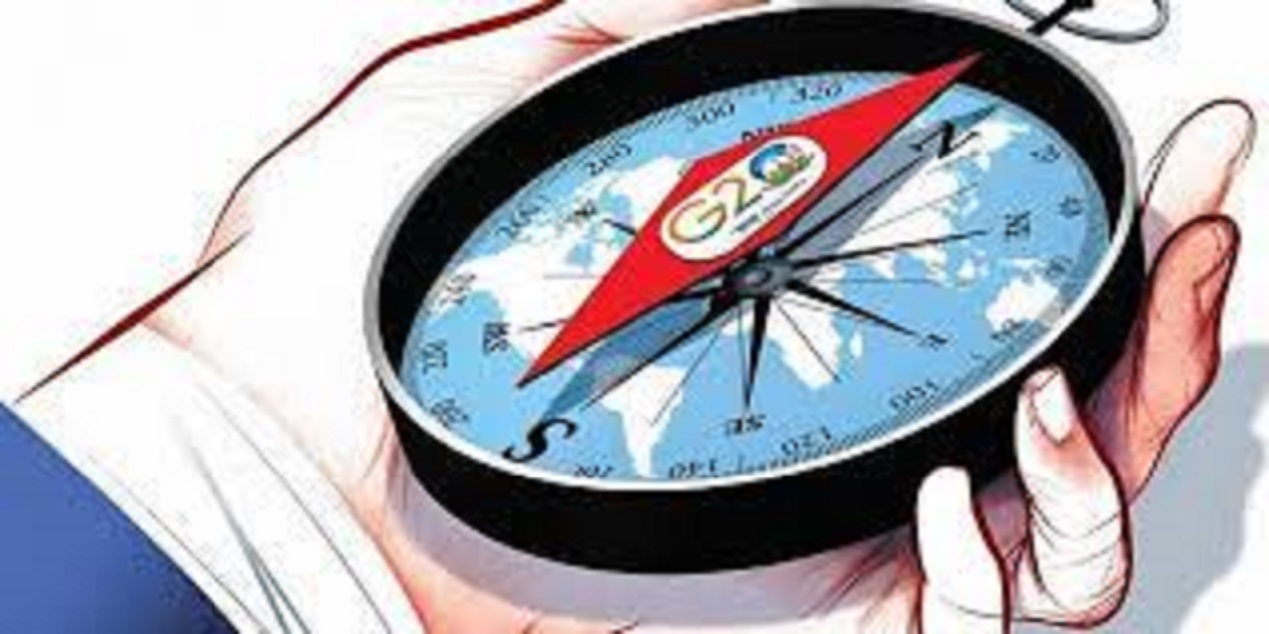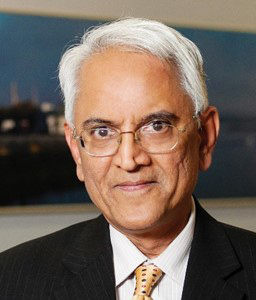The pervasive mood in much of the developing world is not to let geopolitical confrontation stymie progress on the issues of major consequence for them.
The issue of the G20 New Delhi Leaders’ Declaration, on day one of the two-day Summit, is no less than a black swan event. With the geopolitical polarisation of the West and Russia-China, it appeared inconceivable that a meeting including them could produce a consensus, particularly on Ukraine.
Several countries had signalled that they expected an explicit condemnation of Russia’s invasion of Ukraine. Russia, supported by China, insisted it would not accept even the formulation that had found reluctant consensus at the G20 in Bali a year ago, since both the military situation and the political environment had changed since then.
In the event, the final text was a substantial departure from the Bali version, but in unexpected ways. The condemnation of the Russian invasion of Ukraine, which was included in the Bali declaration as a quote from a UN General Assembly resolution, was dropped; the resolution was mentioned only by its number.
The New Delhi declaration did contain obiter dicta on international law: states must act in accordance with the purposes and principles of the UN Charter, refrain from the threat or use of force to seek a territorial acquisition, and respect the political independence of states. But as long as they are not specifically named, countries find it possible to live with such general assertions in multilateral documents, pretending that they do not apply to them.
The Bali formulation on Ukrainian grain exports through the Black Sea has also been significantly altered, though this has not attracted much notice. In 2022, Turkiye and the UN had brokered a pair of agreements, by which Ukrainian food exports could be shipped out of its ports through a safe “corridor”, while Russian exports from its ports would also be enabled. These agreements lapse on September 15. Russia has dug in its heels on their extension, alleging that they have not been fairly implemented: while Ukrainian exports continued, the Russian exports under the deal were hampered because shippers and insurers, deterred by western sanctions, did not lift cargo from Russia’s ports.
The Delhi Declaration has, through a re-ordering of the Bali formulation, subtly emphasised that both agreements have to be implemented in tandem, “to ensure the immediate and unimpeded deliveries of grain, foodstuffs, and fertilisers/inputs from the Russian Federation and Ukraine”.
Extracting a consensus from the jaws of a Russia-West standoff was, unquestionably, a triumph for Indian diplomacy. It harnessed the support of a number of developing countries for this. Some are reluctant to stifle their national interests for causes that are not of critical interest to them. Others are frustrated that geopolitical confrontation is sucking the oxygen out of initiatives to deal with major, even existential, issues confronting them.
These sentiments were expressed at the virtual ‘Voice of the Global South’ summit that India hosted in January, at which as many as 125 countries articulated their perspectives. Countries also want to hedge against pressures that abridged their autonomy of action: this was manifest in the stampede of applicants last month to join BRICS.
The pervasive mood in much of the developing world is, therefore, not to let geopolitical confrontation stymie progress on issues of major consequence for them. India’s diplomacy persuaded the major powers to acknowledge this mood and accept a compromise formulation on Ukraine. This enabled intensive discussions on issues that impact the developing world, including sustainable development, climate justice, debt vulnerabilities, supply chains, infrastructure, connectivity, digital public infrastructure, blue economy and green energy. The Delhi Declaration documents convergences as well as suggestions that may not have full unanimity, something which is inevitable in a disparate group of countries across geographies and developmental stages.
Current global projections show that the bulk of economic growth in the decades ahead will come from the developing world, with a large chunk of it from Africa. Yet, the G20 comprised only a single African country and that too the one which did not have the largest economy in the continent. India’s campaign to induct the African Union into the G20 succeeded in redressing this imbalance.
Russia’s President Vladimir Putin and China’s President Xi Jinping were no-shows in Delhi. This did not take anything away from the summit’s outcome. Veteran Russian foreign minister Sergei Lavrov would have worked the corridors of Bharat Mandapam for an outcome document that Russia did not have much to complain about. Though Xi’s absence disappointed President Biden (he publicly remarked twice about it), EAM Jaishankar pointed out that what really matters is that a country is represented and contributes, adding that China had, in fact, been “very supportive of the various outcomes”.
It has been said of India’s G20 project that a routine multilateral meeting has been hyped up for domestic political purposes. The simple truth is that no government anywhere would pass up the opportunity of domestic credit for its international successes.
At the same time, the geographical dispersion and thematic spread of events served to expose the governments, businesses and media of G20 countries to diverse regions of India and the opportunities in them; this comes at a time when we seek to significantly broaden our global economic engagement, using our geographical, economic and demographic advantages. It was imaginative public diplomacy.
G20 summits began in 2008, when the industrialised economies (G7) acknowledged the importance of major developing economies in addressing global economic and financial challenges. In practice, the G7 has mostly dominated G20 proceedings. But this time in New Delhi, we saw the Global South contribute more to shaping outcomes, bringing in an element of multipolarity in decision-making.
The devil is in the details; follow-up on intentions in multilateral documents is notoriously lax. But we may be seeing the emergence of the G20 from the shadow of the G7 to truly become the premier forum for international economic cooperation, which it had been billed to be at inception. If this trend continues, India would have midwifed the emergence.










Post new comment